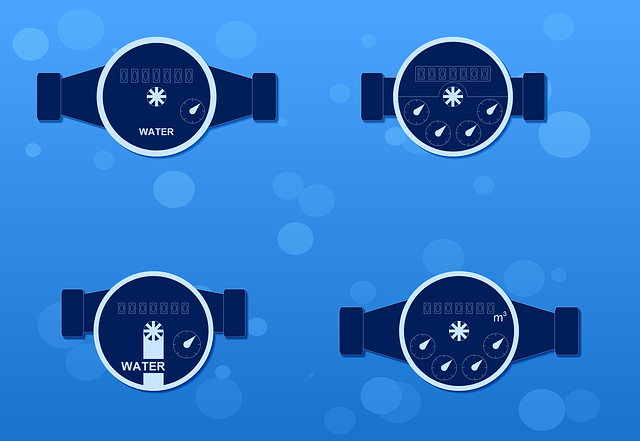How are IoT and Smart Meters Uplifting the Water Industry?
What are smart water meters?
Smart water meters are pieces of advanced infrastructures that create a two-way interaction with the information management system of utilities. Hence, these meters enable customers and water suppliers to share information with each other that empower both parties to take useful and practical actions.
These advanced metering infrastructures are now the need of the hour, especially in cities due to rapid urbanization and growing water scarcity from climate change. By using these meters the cities can balance supply and demand conditions in an efficient manner.
How do (IoT) smart water meters work?
By using modern-day information and communication technologies (ICTs) such as Internet of Things, water utilities are now managing their already limited water supply. This paradigm shift toward cutting-edge IoT solutions enables water suppliers to accomplish two major goals.
First, these systems help them to reduce water losses in the entire water distribution network. As per a study by the World Bank, more than 32 billion cubic meters of water is lost every year. Most of which contributes to non-revenue water. Non-revenue water refers to the treated, sanitized, processed, and supplied water that doesn’t reach the end consumers and enables during the distribution processes.
Second, these ICT powered solutions allow utilities to track and manage the demand for water. This demand management helps utilities to make the best use of existing water supplies. Subsequently, utilities can forecast the time when their water resources will run out and accordingly make plans for the future. This further empowers the conversation of water resources and help provide everyone with sufficient potable water. Learn more about Smart Water Management using IoT Technologies
Role of Smart Water Meters
An essential component of any IoT based water monitoring solution is its smart water meters. These meters allow utilities to regularly read readings of their customers’ meters from remote locations. This helps them to provide their customers with 24*7 fresh and drinkable water and identify water losses in the system.
Currently, many cities around the world have started using automatic water meter readers (AMRs) that use a one-way communication to help utilities monitor water consumption data of end-users in real-time. Smart water meters boasts a two-way communication that facilitates a data-sharing network between the meters and the utility’s information system. These smart meters not only provide benefits associated with meter readings but also helps consumers to garner the consumption data sent back to them from their water supplier. Hence, customers can also develop their own strategies to lower their water consumption costs.
Benefits of using smart water meter based IoT solutions
Both for water suppliers and consumers, IoT smart water meters offer numerous benefits. Let us explore them one by one:
- Benefits for utilities:
- Allow leak identification
- Energy reduction and saving
- Demand forecasting and planning
- Statistically enhanced saving water awareness campaigns
- Efficient appliances promotion
- Monitoring of performance indicators
- Benefits for consumers:
- Reduced water bills
- Water consumption monitoring
- Water consumption comparison against other customers
- Rationing of water-based on consumption thresholds
- Rationing of water-based on time of day
Additionally, the automatic water metering help in analyzing socio-demographic factors and then balance supply and demand conditions. This also strengthens the water distribution network of a city and ensure its efficient management. Check our previous article to find other challenges in the water industry.
Application of Smart Water Meters in Cities
-
Singapore:
The Public Utilities Board (PUB) of Singapore has recently rolled out its efforts in creating a network of smart water meters. The main purpose of using these IoT driven devices is for the city to record water consumption data.
By analyzing this data the city expects to build customer consumption profiles and identify consumption patterns and trends. Moreover, the city wants to share the respective profiles with their customers so that they can understand their water inefficiencies and manage its consumption properly. Singapore’s PUB also wants to use this network to establish an engagement strategy by incentivizing customers to save water. This is all a part of the PUB’s plan to evoke consumers and motivate them to conserve water and reduce tariffs.
-
-
San Francisco:
-
The San Francisco Public Utilities Commission (SFPUC) has also installed similar automated water meters in more than 96% of the city’s 178,000 water accounts. These meters transfer information related to the consumption of water and help utilities to use this data to bill users over a wireless network.
The readings that these meters take, help utilities to identify places where every drop of the water they produced is consumed every hour in a cubic foot of water. The reliable and effective data gathered from these systems also help users to monitor the water consumed by them and detect potential leaks faster than manual methods. SFPUC has also developed a web portal for its users, where they can download the amount of water they have consumed on a daily and monthly basis and learn ways to conserve water. The commission also uses the hourly water consumption data to notify important news to the residents related to water cuts. This system is also used to alert customers about probable leaks if they have garnered non-stop water for 3 days continuously over emails, texts, or calls.
Conclusion
Continuously growing population (especially in cities) and depleting water resources due to climate change has forced the utilities to turn towards smart meters based IoT solutions. These solutions allow utilities to ensure an efficient supply of water based on demand. They are also empowering the customers to go through their historical data about water consumption and take action to save water on a personal level. Thus customers can identify water inefficiencies in their homes and set water-saving goals to further reduce water bills.
 This article was written by Sanjeev Verma, the founder and CEO of Biz4Group, based out of Orlando. He has conceptualized the idea of Biz4 Brand and founded Biz4Group and Biz4Intellia. He has 20+ years of experience in boosting IT-based start-ups to success. In the past, he has worked on leadership positions with Marriott Vacations, Disney, MasterCard, Statefarm, and Oracle.
This article was written by Sanjeev Verma, the founder and CEO of Biz4Group, based out of Orlando. He has conceptualized the idea of Biz4 Brand and founded Biz4Group and Biz4Intellia. He has 20+ years of experience in boosting IT-based start-ups to success. In the past, he has worked on leadership positions with Marriott Vacations, Disney, MasterCard, Statefarm, and Oracle.
